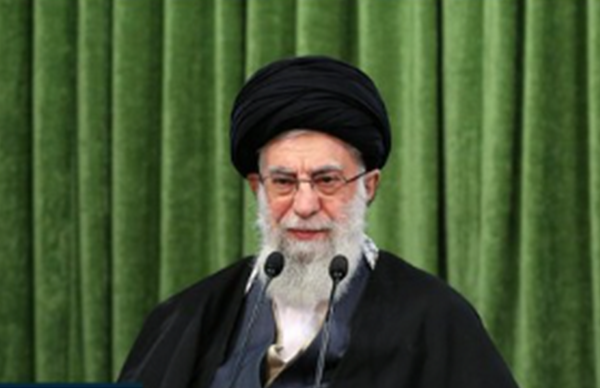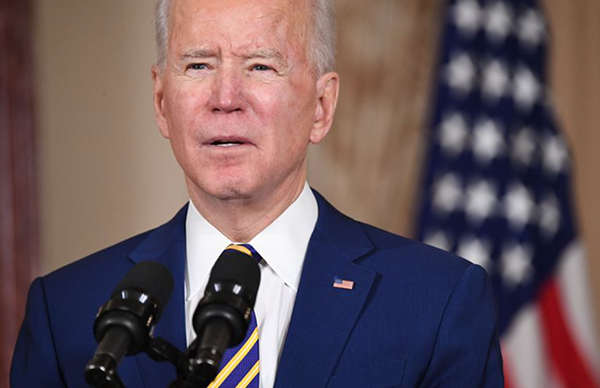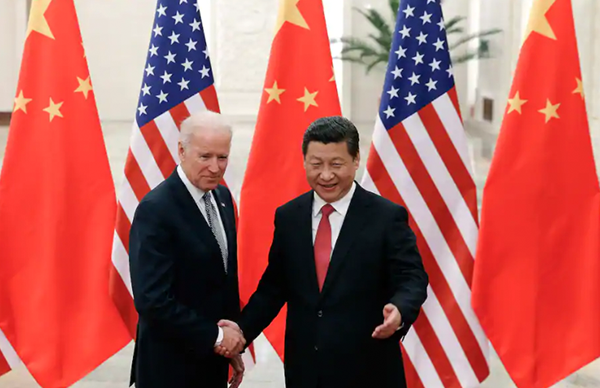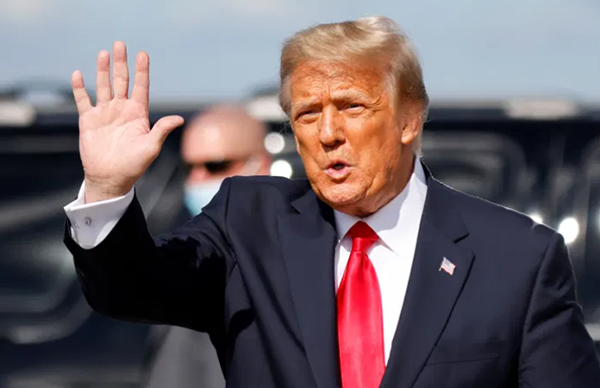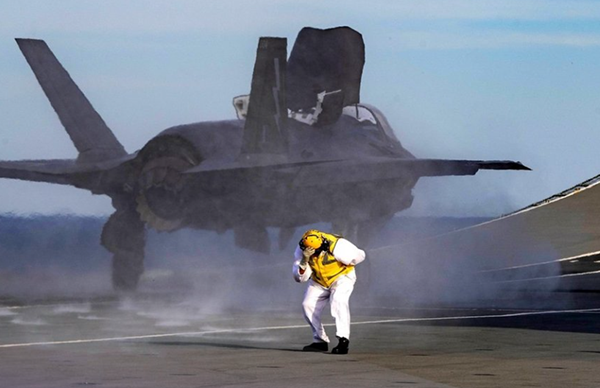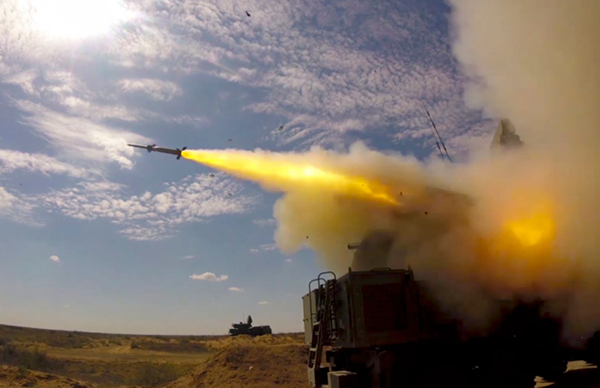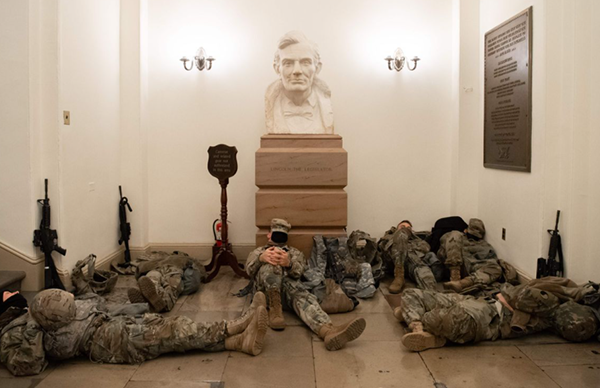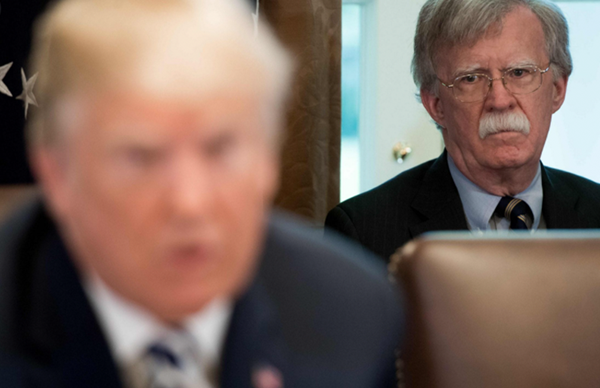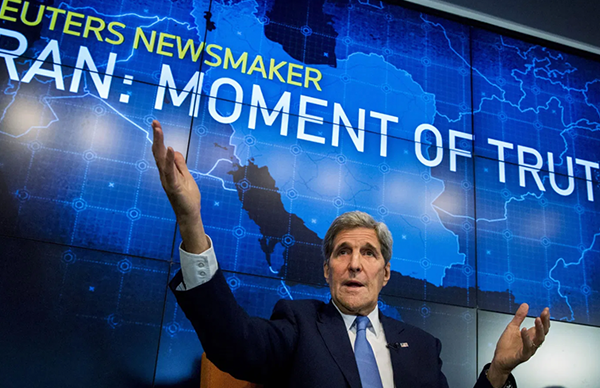Trump had no philosophy, no principles and no plan to govern, and yet the GOP supported his rise to power – with distastrous consequences. The party needs to understand how that happened before it can do better
This article appeared in The Globe and Mail on January 16, 2020. Click here to view the original article.
By John Bolton
January 16, 2020
The United States, its Constitution and its civic structures suffered a miserable four years during Donald Trump’s presidency. His duplicity, short attention span, ignorance of history and cluelessness about the actual workings of the very government he headed – among other things – brought to the Oval Office unequalled incompetence. His words and his conduct exacerbated partisan tensions – already too high when he took office – and undermined public faith in the integrity of critical government institutions, particularly the credibility of America’s entire electoral process.
Mr. Trump’s tenure would have dismayed the Founding Fathers – most tragically on Jan. 6, when he incited a mob to enter the Capitol building in Washington, intending to disrupt Congress from fulfilling its constitutional responsibility to certify the 2020 election results. His second impeachment by the House of Representatives, and the general public outrage, show how unhappy Americans are with his conduct.
While the Constitution is fortunately far stronger than the likes of Mr. Trump, we should nonetheless all remember Ronald Reagan’s wise counsel: “Freedom is never more than one generation away from extinction. We didn’t pass it to our children in the bloodstream. It must be fought for, protected, and handed on for them to do the same, or one day we will spend our sunset years telling our children and our children’s children what it was once like in the United States, where men were free.”
Mr. Trump’s departure from office is a relief, but it obviously does not repair the significant damage he has caused. To begin the recovery effort, we must understand fully why Mr. Trump’s appearance on America’s political scene represented an aberration of historical dimensions. Once that phenomenon is better appreciated, the way forward becomes clearer.
Fundamentally, Mr. Trump has no philosophy, does not think in terms of “policy” (as we normally understand that term) and sees essentially everything through the prism of what benefits Donald Trump. Thus, his decisions as President constitute “an archipelago of dots,” as I wrote in my recent book, not a coherent pattern resting on principles and logic. Mr. Trump is not a conservative. He is not a liberal, either. He is simply entirely pro-Trump.
His favourite lawyer, Roy Cohn, once described how former senator Joseph McCarthy (a Republican from Wisconsin) became an anti-Communist: “Joe McCarthy bought anti-communism in much the same way as other people purchase a new automobile. The salesman showed him the model; he looked at it with interest, examined it more closely, kicked the tires, sat at the wheel, squiggled in the seat, asked some questions and bought. It was just as cold as that.”
It is entirely possible that Mr. Cohn taught Mr. Trump this very lesson about “conservatism.” Whatever the background, the contrast between Mr. Reagan and Mr. Trump could not be more vivid.
Mr. Trump’s approach to business in his pre-White House years, which he himself has described, was entirely transactional: buy this property, sell that property and move on to the next deal. Mr. Trump’s final balance sheet has not yet been written, and it may be that his transactional style brought him all that he wanted in private life. For America’s governance, however, it is wholly inadequate – especially in national-security matters.
Without a coherent philosophical framework, Mr. Trump’s decisions (including all those with which I strongly agreed) emerged through discrete deals that he found beneficial to him personally, not because he “believed” in what he was doing. A roulette wheel is more philosophically consistent than Mr. Trump’s decision-making.
This is far from saying, of course, that Mr. Trump made only erroneous substantive decisions as President. Au contraire. During the 2016 campaign, to gain the support of conservatives, especially evangelical Christians, he promised to nominate judges who were originalists in their interpretation of the Constitution and laws. This he did. He endorsed, if elected, lower taxes and less economic regulation – orthodoxy that any Republican presidential nominee would advocate. This he did. He repeatedly stressed opposition to the Obama administration’s 2015 Iran nuclear deal, and pledged to withdraw from it. This he did. (And, in full disclosure, ramrodding this withdrawal through the bureaucracy was my principal focus during my first 30 days as national security adviser – something in which I take considerable satisfaction.)
On the other hand, Mr. Trump was the most profligate spender in U.S. history, particularly during the coronavirus pandemic, when fiscal discipline disappeared from a nominally “Republican” White House. Why should Mr. Trump care? It’s not his money. He supported reversal of criminal sentencing principles that had been hard-fought-for under Mr. Reagan, whose administration sought to limit the federal judiciary’s sentencing discretion, especially to prevent overly lenient sentences.
In the national-security field, Mr. Trump, among other mistakes, blotted his copybook by craving a new deal with Iran’s ayatollahs on their nuclear weapons program; by seeking deals with strongmen Kim Jong-un, Vladimir Putin, Xi Jinping, Recep Tayyip Erdogan and so on ad infinitum. I can say with confidence he had little or no idea what the terms of such deals would be. He simply wanted deals he could announce with great fanfare because he saw them as marks of success. Who reads the fine print, anyway?
Worst of all, his erratic, non-strategic, utterly self-centred approach led directly to the disastrous U.S. response to the pandemic. This was a slow-moving crisis, one with terrible human costs. In a fast-moving international crisis – say, a nuclear confrontation with Russia or China – I believe Mr. Trump’s flaws would have almost certainly recurred. Fortunately, we were spared such a scenario, but had one erupted, Mr. Trump might well have simply melted down.
Mr. Trump’s opponents on the left side of the political spectrum routinely group his personal faults together with his decisions as President. In the same breath, for example, opponents list his mendaciousness, his withdrawal from the Iran nuclear deal and his lack of self-discipline as if they were equivalent failings. They are attacking both Mr. Trump and the conservative philosophy as if the two were interchangeable. Doing so may gratify the critics, but it is fundamentally mistaken analytically.
For conservatives at least, it is precisely the important distinction between Mr. Trump’s personal deficiencies and his utter lack of any philosophy that should be our focus looking ahead. In concrete political terms, that means above all fixing conservatism’s chosen political vehicle, the Republican Party. The damage Mr. Trump caused is real, and, from his Mar-a-Lago bunker, he will likely obstruct our repair efforts. But the task is far from insuperable.
What model should Republicans follow? Returning to a Reaganite view of public policy, domestically and internationally, would do just fine. Today’s issues are obviously different from Mr. Reagan’s time, but his principles remain correct, never better explained than in his Oval Office farewell address just days before his second term ended in January, 1989. In those remarks, we also saw Mr. Reagan’s characteristic optimism, so different from Trump’s “American carnage.”
One of Reagan’s anecdotes, embodying both policy and perspective, stands out – he called it “a small story about a big ship, and a refugee and a sailor. It was back in the early eighties, at the height of the boat people, and the sailor was hard at work on the carrier Midway, which was patrolling the South China Sea. The sailor, like most American servicemen, was young, smart and fiercely observant. The crew spied on the horizon a leaky little boat – and crammed inside were refugees from Indochina hoping to get to America. The Midway sent a small launch to bring them to the ship, and safety. As the refugees made their way through the choppy seas, one spied the sailor on deck, and stood up and called out to him. He yelled, ‘Hello, American sailor – hello, Freedom Man.’”
These are words Mr. Trump is simply incapable of uttering, let alone conceiving.
Returning to Mr. Reagan’s fundamental conservative principles leads some to ask who the “new” Reagan will be. That is the wrong approach. Indeed, it is dangerously close to the mistake many made with Mr. Trump. Politics, at least for conservatives, is about policy, not personalities. One of Mr. Trump’s worst consequences was torquing America’s political discourse around the question whether people agreed with Mr. Trump or not. That is, ultimately, a totally irrelevant question. Loyalty oaths to individuals contravene basic democratic theory – our loyalties should have higher aspirations: the country, the Constitution and our conscience.
There will never be another Ronald Reagan, just as the Democrats will never have another Franklin D. Roosevelt. Instead, looking to the 2022 midterm House and Senate elections and the 2024 presidential race, Republicans should seek candidates who can articulate a conservative philosophy, not fealty to any individual.
In the wake of Mr. Trump, emphasizing character must also be a key factor. Many decent, honourable people agree that Mr. Trump had a hole where his character should have been, but argued nonetheless that Republicans had to overlook this unpleasant reality. We cannot allow ourselves to settle for second-best (or worse). Looking ahead, we should insist that we recruit, nominate and elect candidates who are both philosophically conservative and possessed of real character.
To be successful, therefore, conservatives will need to spend considerable time and effort over the next four years fixing the institutions and structures of the Republican Party. It is essential that party committees and organizations remain strictly neutral as members select nominees at all levels: local, state and federal. Neither Mr. Trump nor anyone else should be allowed to tip the scales in their favour, or in favour of candidates they endorse. Ensuring this neutrality at the Republican National Committee – for example, in allowing fair and equitable access to its enormous amount of voter information, polling data and the like – is crucial. Party structures should not be at anyone’s beck and call – certainly not Mr. Trump’s. Over the next several years, all eyes will be on the RNC leadership, and the state parties, to ensure scrupulous neutrality.
Defeat does not entitle Mr. Trump to further influence – it entitles him to retirement. At noon on Jan. 20, everyone should understand that Mr. Trump moved from the most powerful office in the world to the swimming pool at Mar-a-Lago. He will doubtless still have influence, but he does not have power. This is a decisive inflection point, dawning on everyone with increasing clarity. Even before the Jan. 6 tragedy, Mr. Trump’s influence was declining, as reflected in December’s congressional override of his veto of the crucial defence authorization bill. Mr. Trump, of course, is a major contributor to his own decline, by falsely denying the outcome of the 2020 election, and provoking both the congressional efforts to overturn those elections and the mob that entered the Capitol at his behest. This is fitting: Mr. Trump is always the star in his own mind – even when shooting himself in the foot.
Joe Biden’s inauguration reflects not only Mr. Trump’s loss of power, but the dramatic and irreversible shift of the U.S.’s attention to the new administration. I take no joy in this, especially in the national-security domain, because I believe the new president’s likely policy directions will frequently be grievously in error. But it is also inevitable, as new policy lines are drawn and new political battles break out, that the national attention will focus on current events and not the rapidly receding past. In addition to substantive disagreements, in Congress it has ever been true that “the duty of the opposition is to oppose.” More likely than not, therefore, internal Republican disagreements over Mr. Trump – which remain significant – will nonetheless subside over time as Republicans unite to make their shared rejection of Mr. Biden’s policies more effective. Who will cite a disgraced Mr. Trump as support for any policy position? No Republican who expects to succeed over the long term, that is certain.
The Biden administration’s opening years thus represent for Republicans a two-front struggle: repairing their damaged party while simultaneously preventing the new administration, faced with a Congress in both houses divided almost exactly 50-50, from achieving its worst philosophical objectives. There is little time left to worry about what Mr. Trump says or does. He should go play golf. We have better things to do.
